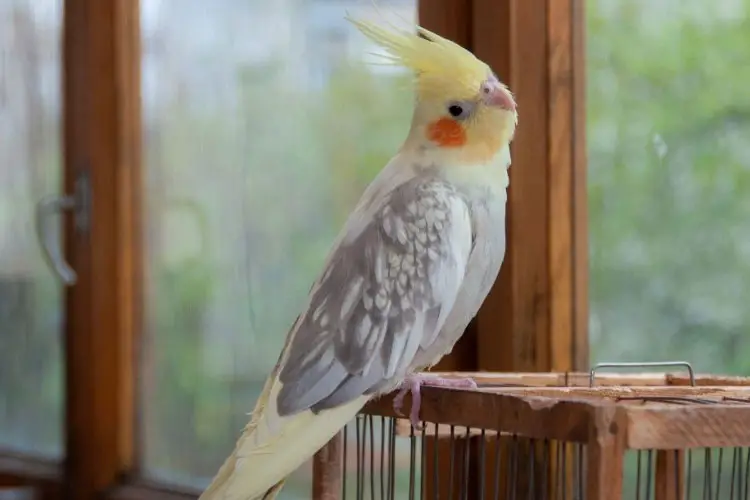If you’ve ever been around a dying cockatiel, you know there’s nothing more heartbreaking than watching them slip away. The little bird just stares blankly at you, eyes wide and unseeing—and then it can’t move, can’t eat, can’t drink. You can’t fix this situation—but you can help!
So, how to comfort a dying cockatiel? It would be best if you reduced their anxiety levels by giving them a conducive environment. A dying cocktail will also need a lot of water, food, and warmth. It would help if you comforted it through soft cuddles, gentle music, or talking to them. When it’s about time, your cockatiel will also love solitude.
This article will teach you everything you need to know about comforting a dying cockatiel. It will also help you figure out what to do when your cockatiel finally dies.
How to comfort a dying cockatiel
When it comes to caring for your dying bird, there’s no one-size-fits-all solution. Every cockatiel is different! Some will be more sensitive than others, and others will need more attention. Here are some things you can do to comfort your dying pet bird:
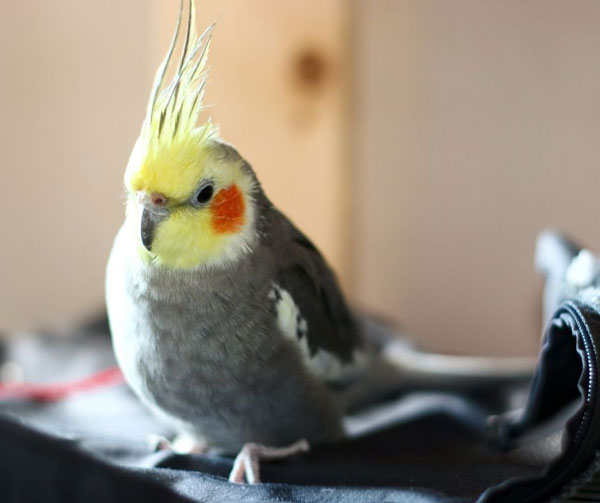
1. Isolation
Isolation is an essential step for any parrot in the last days of life, but it’s especially critical when the bird is dying.
If you have a cockatiel, you know they’re prone to aggressive behavior, so it’s essential to ensure they feel safe and isolated while on their deathbed. Isolation will also prevent the spread of the disease to other parrots in your house.
2. Talking to them
When you’re sad, you need to be comforted. And when a cockatiel dies, it’s no different from someone grieving.
So, don’t be afraid to talk to your cockatiel.
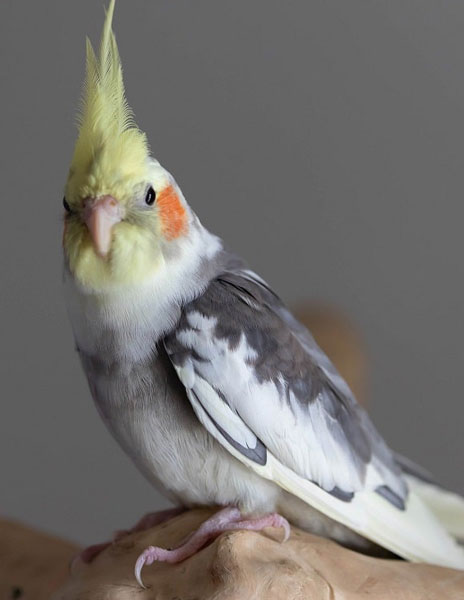
It’s essential to keep them company and let them know that you’re there for them. Even if they can’t answer, having someone to talk to will help them feel less alone in their final days.
3. Gentle music
You can either play some gentle music or murmur while playing music with a low tone.
The idea is that while the music is playing, your parrot will still hear your voice and associate it with comfort and calmness. The birds feel calmer when they hear it later on in their final seconds of life.
The important thing here is not much about what kind of music you play (although we recommend using classical). It is how much time you spend doing this daily—and how often! It’s best to do this at least once every day for at least 10 minutes during the last days of your parrot.
4. Food and water
To comfort a dying cockatiel, you must feed the bird and ensure it can access clean water. Cockatiels are known for being finicky, so you mustn’t feed them something they don’t like. Instead, try feeding them something they love.
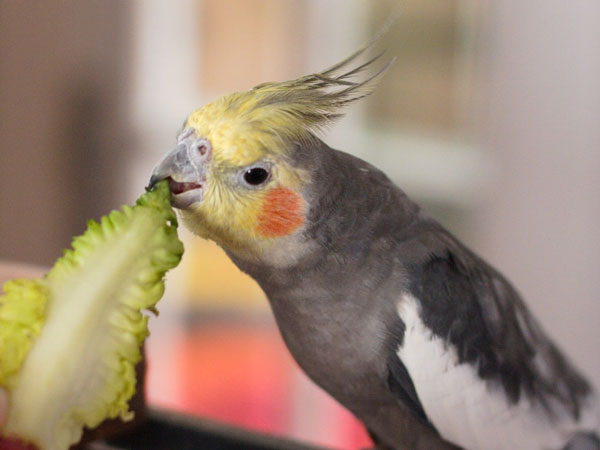
70% of their diet should be nutritious seeds, and the other 30% fruits and veggies. You could try millet, leafy greens, pellets, fruits, or other nutritious food. This will help the bird feel more comfortable in its final days and give it something to focus on instead of its illness.
5. Warmth
Cockatiels are very sensitive to temperature. They must be kept cool, between 65 and 80 degrees Fahrenheit, at all times. If they are kept too cold, they will die of hypothermia. If they are kept too hot, they will develop dehydration issues and die.
You should know cockatiels love to sleep on warm surfaces and will often seek a mate to snuggle with at night—just as humans do when they miss their partners! So if you have an aging cockatiel who has lost its mate, try warming up the bedding before going to sleep so that your parrot will have something warm to nestle into while you’re sleeping.
It might not sound like much, but this simple act of kindness could mean all the difference in helping your bird through its last days.
6. Conducive environment
The last thing you want to do is force your parrot into an environment where it feels uncomfortable. It’s essential to create an environment in which it can thrive without suffering from pain or discomfort.
Ensure plenty of perches for the bird to sit on so he doesn’t have to stand for long periods. Also, make sure there are plenty of toys. Ensure no bright colors in the room, loud music, or other disturbing pets like cats.
7. Cuddling
Cockatiels are so social that they love being held by their owners—and they’ll be comforted by human contact even if they’re not feeling well! Try gently holding your cockatiel in your arms or lap and petting it.
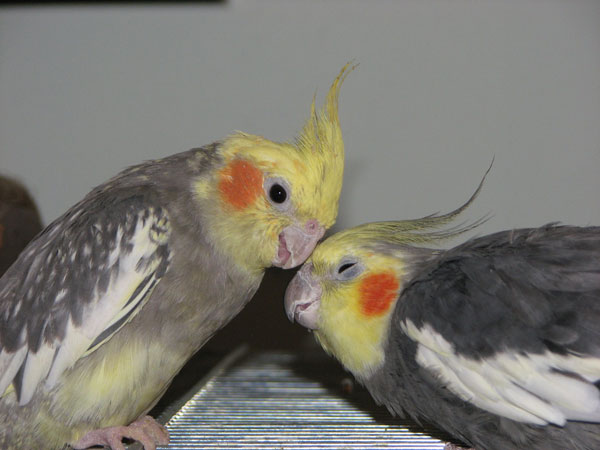
We recommend using a warm blanket to cuddle with them. They need warm cuddling to feel secure and less anxious during their last moments.
8. Dim lights
Cockatiels get anxious when there’s too much light in the room. Dimming the lights might help make things better for both of you (and it’s more humane than turning off all the lights).
Ensure that your parrot does not feel startled by sudden flashes of light from the TV or other electrical devices around them (or outside). If possible, try turning off all electronic devices in the room where your parrot is dying. This will help alleviate any stress caused by these sources of light.
How can you tell a cockatiel is about to die?
When a cockatiel starts to act weird, you know it’s time to say goodbye. But what signs should you check out for? Here is how you can tell your cockatiel is about to die:
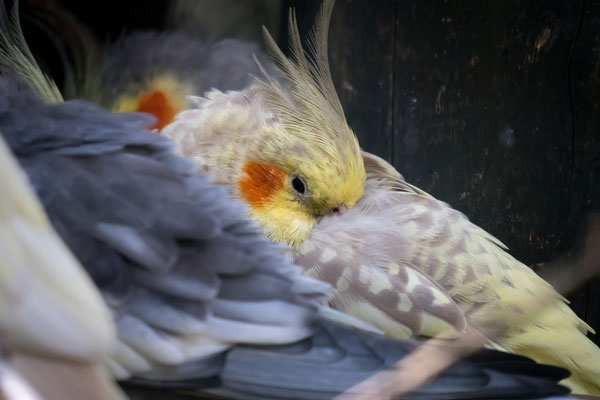
1. Decreased appetite
Cockatiels often stop eating when they are ill, but this can also happen when they are depressed or experiencing other emotional stress. If your cockatiel is not feeling well and is starting to lose interest in food and water, it could be because it’s dying.
2. Lethargy
Lethargy is a term used to describe the inability to move or react. Lethargy can be caused by several factors, including illness, injury, and stress. Lethargy is also a sign that it’s dying. If you notice your bird starting to act lazy and unresponsive, you must act fast to comfort your dying bird.
3. Irritability
Cockatiels are usually pretty chill, but if you notice signs of irritability in your bird, they may be approaching death. Cockatiels can get irritated when stressed, scared, insecure, or in pain.
4. Squinting
Squinting is a sign that your bird is feeling pain or discomfort—it’s not something they do on purpose! This can indicate that something is wrong with them physically and they are about to die.
5. Reduced activity
If you’ve noticed that your cockatiel’s activity level has dropped, it could be a sign that it’s about to die. Cockatiels are incredibly social birds and will spend hours a day singing, preening, and interacting with their flockmates. When they have reduced activity and no longer sing, they’re often in the throes of death.
When to take a dying cockatiel to a vet
A dying parrot is a sad sight for any pet owner. It can be challenging to know when to take your bird to the vet, but there are some indicators that you should check for before making that decision.
If your parrot has not eaten for more than 24 hours or stopped eating and drinking water, you should take it to the vet. If you suspect your bird has a medical problem, such as an abscess or infection in its body cavity, also take it to the vet immediately. A vet can determine if something is wrong with your bird and help treat any problems.
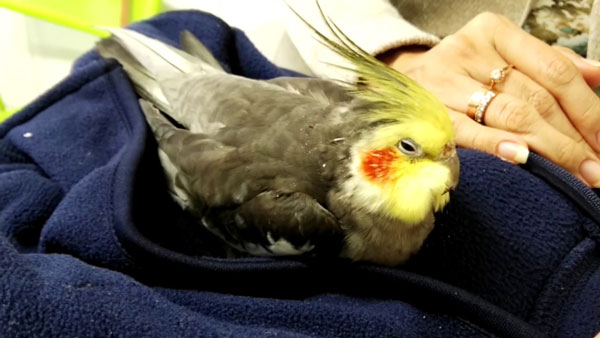
Some birds may appear sick for weeks or even months before showing symptoms of illness. It’s essential to be prepared for any signs of illness early on. You may notice changes in behavior or appearance from what’s normal for your bird, such as lethargy or decreased activity level.
If you also notice any unusual smells coming from their cage or home environment—then it’s time to call the veterinarian!
FAQs
Here are answers to common questions:
Cockatiels live an average of 10 to 15 years when tamed. They are long-lived birds, and their average lifespan is one of the longest in the pet industry. Dos and cats will live for almost the same time as a cockatiel.
Cockatiels are incredibly social; they don’t do well when left alone for long periods (even if you’re home all day). However, this will not kill them. They might die from extreme loneliness, including depression and lack of appetite. If they don’t eat, it will lead to malnutrition and eventually death.
The answer is going to depend on the situation. If your bird has a severe illness, it’s probably best to let it die naturally while isolated. Let it just die naturally if it’s old and has developed irreversible medical conditions. Otherwise, if your bird is having trouble breathing and eating and is young, we’d recommend getting some help from a vet as soon as possible.
Conclusion
Cockatiels are beautiful birds with a lot to offer, and they deserve to be treated with the kindness and love they give. It’s important to remember that cockatiels are living beings with feelings like yours, your dog, or your cat’s. They want to feel safe and comfortable, just like you do.
So, if your pet bird is dying, you must be prepared to face this situation. The best way to comfort a dying cockatiel is to keep them in a conducive cage with its favorite toys, food, and water.
